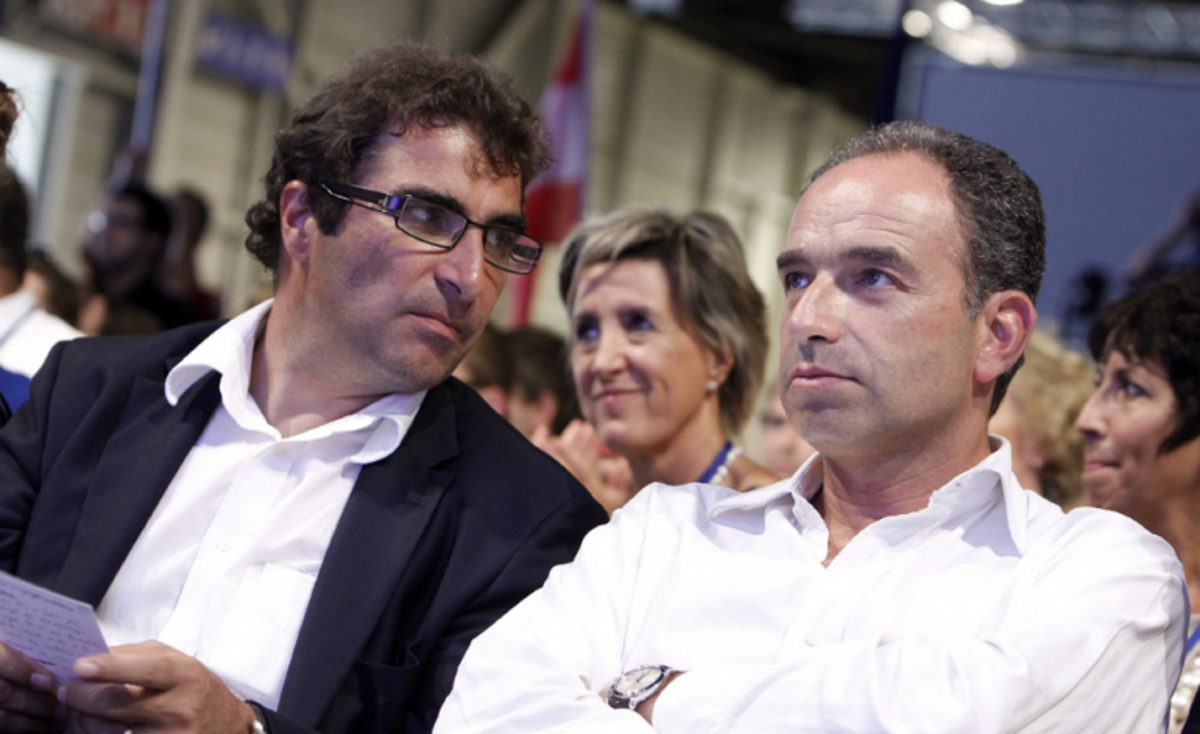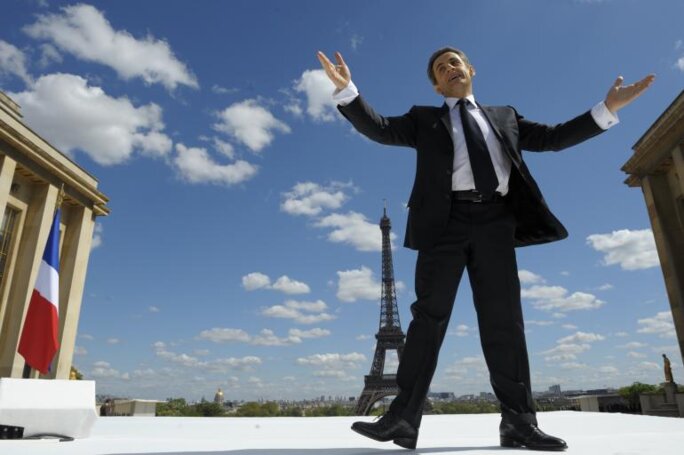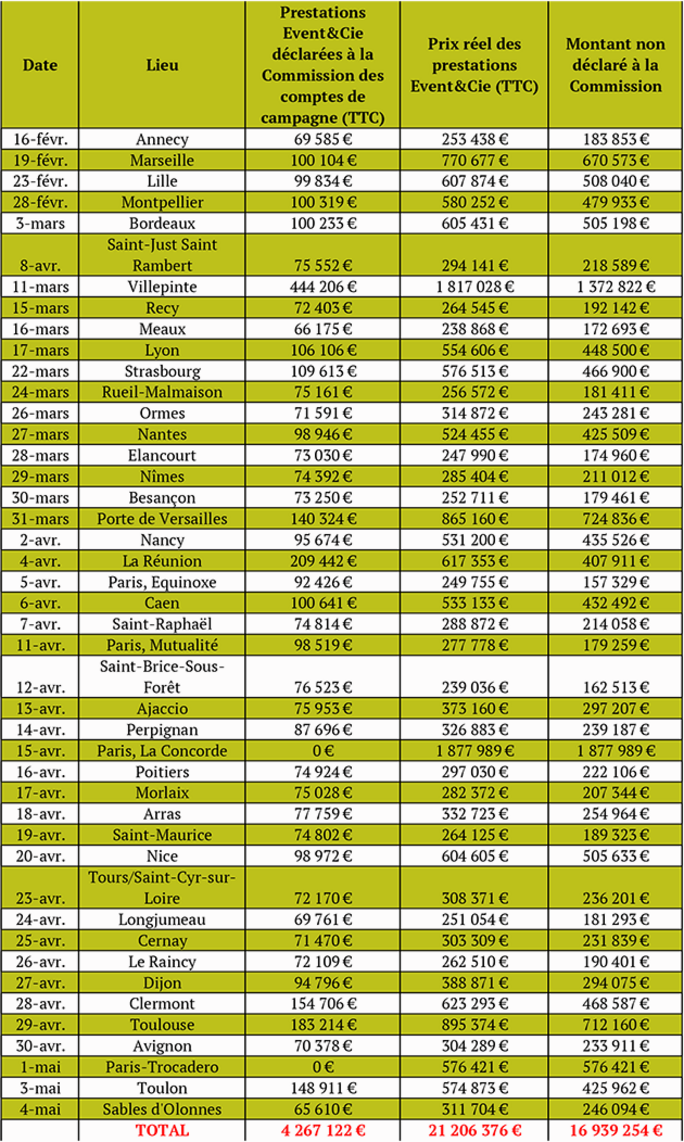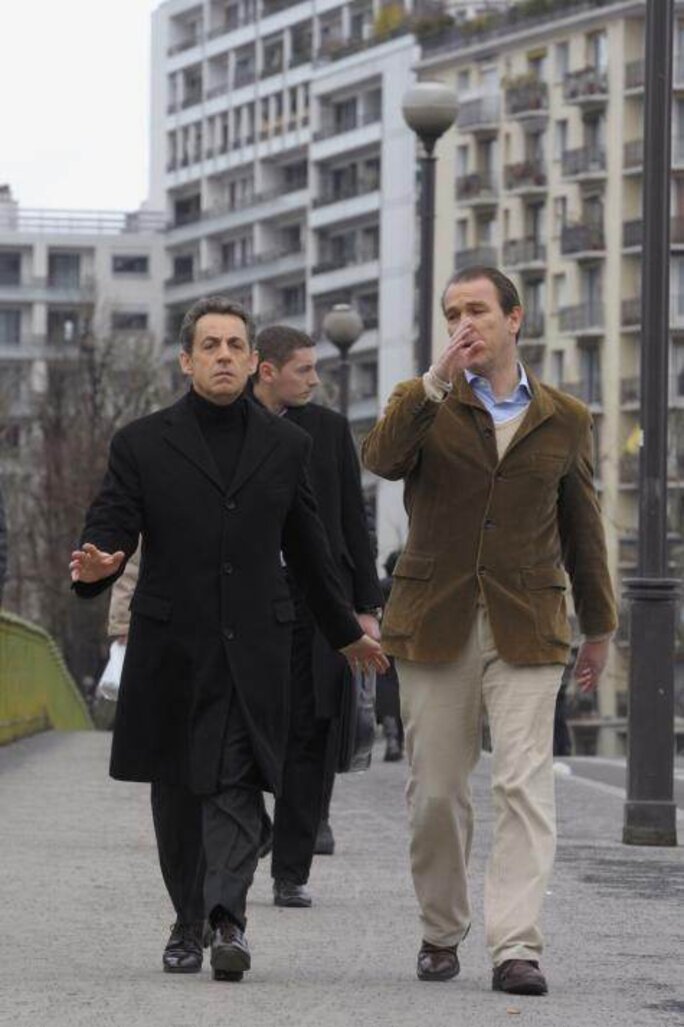Following the rout suffered by France’s conservative UMP party in presidential and legislative elections in 2012, the head of its parliamentary group, lent the party 3 million euros from what are mostly public funds in fact allocated for the financing of the group’s functions and activities in parliament, Mediapart can reveal.
Jacob organised the loan without informing UMP Members of Parliament (MPs), many of whom have expressed outrage at the news. “A party is not a sect, a gang or a clan,” commented UMP MP and former minister Bruno Le Maire, in an apparent reference to Jacob’s closeness to Jean-François Copé, who was head of the UMP when the loan was made.

Enlargement : Illustration 1

“This money is given for the functioning of the UMP group in the National Assembly and not for other things,” said another UMP MP, Lionel Tardy. “There must be a strict rule between the UMP group and the UMP itself. Nobody knew about this loan, so we’ll be demanding explanations on Tuesday during the group’s meeting at the National Assembly.”
The MPs themselves contribute 200 euros per month to their group’s funds (representing a total of 450,000 euros per year), as a top-up on the public subsidies it receives, like every other political group, to be used for activities such as paying MPs’ staff, training courses and parliamentary meetings.
Jacob has admitted organising the loan during the summer of 2012 when the UMP, facing bankruptcy, also took out a 55-million-euro loan from a pool of banks. “I asked that our loan be annexed to that of the banking pool, with the same conditions,” Jacob told Mediapart, adding that the UMP had begun paying back the money, although there remained 2.4 million euros to be refunded by 2017.
Following the revelation, Claude Bartelone, the socialist president (speaker) of the lower house, the National Assembly, announced this weekend a review of the statutes of parliamentary groups “to allow the exercise of control over the use they make of the endowments that are paid to them.”
The disclosure of the secret loan highlights not only the remarkably opaque finances of parliamentary groups, but also comes on the back of further revelations by Mediapart on how the UMP concealed massive illegal overspending on Nicolas Sarkozy’s re-election campaign bid in 2012.
Campaign spending by candidates who reach the second round of presidential elections - in 2012 UMP party candidate Sarkozy reached this final contest with François Hollande - is limited by law to a total of 22.5 million euros.
Sarkozy’s official accounts for the 2012 campaign declared spending of 21.3 million euros. Already, in July 2013, the Constitutional Council upheld a decision by the special commission that presides over campaign spending, the Commission des Comptes de Campagne et des Financements Politiques, which found that Sarkozy’s campaign exceeded the allowed total by 300,000 euros, based on the additional costs of opinion polls and meetings that preceded, but were part of, the official launch of his bid.
The commission therefore invalidated his accounts, resulting in a loss for the already struggling UMP of 11 million euros that it would otherwise have received in public subsidies for the campaign.

Enlargement : Illustration 2

However, according to confidential documents obtained by Mediapart, Sarkozy’s campaign spending in reality totalled, at least, just more than 39 million euros - of which 17 million euros was concealed behind faked invoices organised by UMP officials.
The scam, which is the subject of a preliminary investigation by the public prosecutor’s office into “fraud”, “abuse of trust” and “misuse of company assets”, was carried out with the collusion of a communications company, Bygmalion. The company was founded by Bastien Millot and Guy Alvès, who both formerly served as political aides for Jean-François Copé, who was last month forced to resign as UMP president over the scandal, leaving the party in the hands of a caretaker leadership of three former conservative prime ministers. When the contracts with Bygmalion were signed, Copé was the party’s secretary general, and Sarkozy was its president.
The communications firm Bygmalion and its events subsidiary Event & Cie were tasked with organising many of the political events for team Sarkozy. But within the Sarkozy camp there was unease that they were spending money so fast on the campaign that they would smash the 22.5 million euro spending limit. The claim is that rather than billing the Sarkozy campaign for all of the work it had done, Event & Cie under-charged it, as set out in the chart below.

Enlargement : Illustration 3

Above, from left to right, the columns show: dates of meetings, places of meetings, the officially-declared amount of each invoice, the true cost to the UMP, and the undeclared difference between the two.
The difference was then paid back to Event & Cie by the UMP through faked invoices for party conferences that were not part of the election campaign – many of which were in fact non-existent, while those that did take place were over-charged. The 58 invoices for these are published below (scroll down to view all).
In the case of one of the fictitious conferences, entitled on the invoice as a ‘Conference on access to credit’, UMP MP and former junior minister Pierre Lellouche was cited as a speaker at the non-existent event. Lellouche has now filed a complaint for ‘identity theft’.
'A ticking time bomb'
The fraudulent system of fake invoices for the Sarkozy election campaign was first publicly confirmed by Bygmalion’s lawyer Patrick Maisonneuve during a press conference on May 26th, when the company’s offices were searched by police acting in the framework of the preliminary investigation. “There were indeed fake invoices made out on the UMP’s request, and even imposed on the company Bygmalion by the UMP, to conceal the campaign expenses of Nicolas Sarkozy,” he said. Later that same day, in a tearful interview on BFM TV, the deputy director of Sarkozy’s 2012 campaign, Jérôme Lavrilleux, admitted the illegal double book-keeping.
According to Maisonneuve, the faked invoices hid “more than 10 million euros”. However, an investigation by Mediapart has established that the real hidden sum amounted to 17 million euros.
Mediapart has gained access to information contained on a USB flash drive used by Bygmalion to record the double book-keeping. The information on the data storage stick details Bygmalion subsidiary Event & Cie’s invoices for Sarkozy’s 44 meetings across France during his 2012 campaign. One file, entitled ‘Factures 2012’ (‘2012 invoices’) details the costs that appeared on the official invoices – and which were subsequently provided to the official commission that studies candidates’ spending at the end of an election. A second file, entitled ‘Balances 2012’, shows the real costs of the meetings, which are often between three and four times superior to what was officially declared, and which even reached seven times more in the case of a rally in Marseille.
The flash drive in question was seized by officers from the French police’s anti-corruption agency, the 'Office central de lutte contre la corruption', during their search of Bygmalion’s offices in central Paris on May 26th. Bygmalion co-founder and director Guy Alves told police then that the faked invoices served only to cover-up the real costs of Sarkozy’s campaign, and were not used for personal financial gain.

Jérôme Lavrilleux, deputy director of Sarkozy’s 2012 campaign, was last week questioned by police. “My political career is now at an end and I will probably be convicted, I know it,” he told Mediapart. A former chief-of-staff for now-departed UMP president Jean-François Copé, Lavrilleux was given charge of logistical organisation of Sarkozy’s campaign. “It helps lots of people, I believe, that ,” he added. He has accused the director of Sarkozy’s campaign, Guillaume Lambert, of being fully aware of the scam. “It is strictly impossible that he was not aware, just like the UMP’s director-general of services [Éric Césari],” said Lavrilleux, “otherwise, what did they do with their days?”
According to Lavrilleux, the decision to go-ahead with the fake invoicing was taken “during a meeting in Eric Césari’s office, in presence of campaign director Guillaume Lambert, Franck Attal from Bymalion, and Fabienne Liadzé, the UMP’s financial director”.
“I was informed one hour later,” said Lavrilleux. “And I recognise the fact that I validated it.”

Enlargement : Illustration 6

Campaign director Lambert, now a prefect for the Lozère département (or county), answered Mediapart’s questions via his lawyer, Christophe Ingrain, who denied that 17 million euros were hidden from Sarkozy’s official campaign accounts. “If there was 17 million or more, it would have been seen,” the lawyer said. “My client paid close attention, he trimmed all of the spending. He tried and even succeeded in bringing down the cost of services, notably after the meetings in Marseille and Annecy the costs of which were hallucinatory.”
Meanwhile, Sarkozy’s campaign treasurer, UMP MP Philippe Briand, told Mediapart: “There was an authorising officer and a payer. I was the payer. It was Guillaume Lambert who sent me the invoices. It was he too who was in charge of the meetings, even if I believe that he passed on that responsibility to Jérôme Lavrilleux. Concerning me, the only invoices I saw were those of the [official] campaign accounts. We could believe that they were already quite pricey, because François Hollande spent 50% less than us on meetings.”
The ongoing preliminary investigation by the public prosecutor’s office appears certain to give way to a full-blown judicial investigation headed by a judge. One of the key questions is at what level the faking of invoices was known. For the time being, Lavrilleux has insisted that neither Sarkozy – who has all but announced his intention of mounting another bid for the presidency - nor Copé were aware of the scam.
But there is widespread speculation in the French media that it is improbable that either man could not have been aware of such massive overspending. “While he [Lavrilleux] goes about covering Sarkozy and Copé, it is difficult to see how, in that case, the candidate for, and the head of, the UMP could have been the only ones to be in ignorance of the system,” wrote French weekly, Le JDD, this weekend. In a report published this weekend, news agency Reuters cited an unnamed “UMP member” as saying: “Bygmalion - it’s a ticking time-bomb, when it really explodes for good, [Sarkozy] won’t escape the impact.”
Last week two UMP MPs, Pierre Morel-A-L'Huissier and Étienne Blanc, filed a lawsuit against “persons unknown” in the Bygmalion fraud case in a move to hasten the opening of a full judicial investigation. “I don’t pre-judge who is responsible,” Morel-A-L'Huissier told Mediapart. “It’s of no importance whether that is a former secretary general or a former president.”
Speaking on France-Inter radio this weekend, Morel-A-L'Huissier added: “I am very angry. I meet people, in everyday life, who ask me ‘What’s going on at the UMP?’ I tell them ‘I don’t know’, but I can’t carry on telling them that. I want to know.”
-------------------------
-------------------------
English version by Graham Tearse


